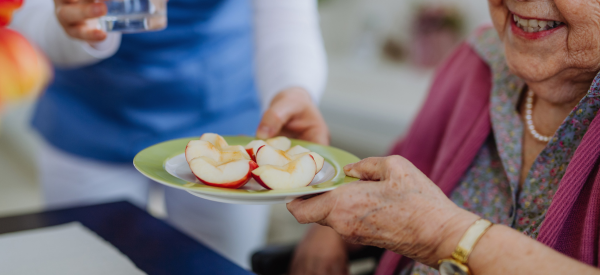Romeoville saw an influx of seniors last month when U.S. Rep. Dan Lipinski hosted a Senior Fair. Lipinski organized this event to connect people with organizations and associations that help seniors. It was a success with many seniors in attendance. And what was learned from this event? That many seniors don’t know the options available to them. It was found that veterans were unaware of the benefits that they could be receiving for their health. With the dangerous chemicals used in Vietnam, where many served, former soldiers have been diagnosed with serious health conditions. Many senior veterans are unaware that
Read More
Posts by Freedom Home Care
"Senior Proms" Aren’t Just For Teens
Rent that tuxedo, buy that corsage, and get ready to boogie the night away. It’s prom season! And the festivities are no longer exclusively for teens. Aplaceformom.com reports that proms for seniors are becoming popular across the country. With the help of local volunteers, these Senior Proms provide an evening for seniors to mingle with friends, dance to tunes from their youth, and dress in their finest. The evening usually begins with a cocktail hour – something you won’t find at your average high school prom. Then the festivities progress to dancing, multi-course dinners, and sometimes even the announcement of the
Read More
Let Thirst Be Your Guide- Avoid Dehydration
As summer is heating up, we become more prone to dehydration. Although most of us know only the mild dehydration symptoms of headaches and sluggishness, dehydration can become serious quickly, leading to hospitalization or even death. So how do we avoid dehydration? The easiest way to stay hydrated is to listen to your body. If you are thirsty, get yourself something to drink. It sounds easy, and it is. The nerves that signal our thirst are very sensitive, and if our bodies lose even 1% of their water from say sweating on a hot day, they will send a signal
Read More
Internet Helps Caregivers Become Experts
With the elderly living longer and savings depleted by a bad economy, an ever-increasing number of adults are caring for their senior relatives. Many seniors are being sent home from the hospital in a medically fragile state, needing care. With unemployment numbers still up, many family’s savings are running dry and cannot cover the cost of a nursing home. The result is a family member becoming the caregiver of that senior. As the chronic illness progresses, the family caregiver usually becomes an expert on caring for the senior. Doctors rely heavily on the caregiver’s input to make medical decisions. That
Read More
Freedom Home Care Listed as One of Illinois' Best Providers of Home Health Care Services
Freedom Home Care is a Highland-Park based home care agency that provides patients with in-home care. Freedom Home Care focus has made them one of Illinois’ leading Home Care Services firms in 2013. Founded in 1997 by Sharon Burack, Freedom Home Care’s services aim to help those who are elderly, ill, disabled or are undergoing rehabilitation. These services include post-hospital and hospice care, housekeeping, bathing, dressing, meal preparation, transportation, companionship and other various needs ranging from live-in help to hourly care. Freedom Home Care helps a wide range of patients including allowing the elderly to age in the comfort of
Read More
Doctors Improve Colonoscopy Prep
Colonoscopy. When most people hear the word, they think about drinking a terrible tasting liquid and then spending the rest of the evening in the restroom. The preparation for the procedure is most definitely the majority’s least favorite part. However, colonoscopies are a necessary test to ensure our health. It is recommended that everyone receive one around age 50 and then every decade after that. Nearly 50% of people avoid this potentially life-saving procedure. Doctors have realized that many avoid it because of the preparation and are trying to arrive at solutions to make it more tolerable. The best solution
Read More
Online Tool Created to Help Manage Dementia
Family caregivers to seniors with dementia often feel overwhelmed. Although memory loss and cognitive problems are most commonly associated with the condition, dementia can often include drastic and disruptive changes in behavior. Sometimes the behavioral symptoms are treated with antipsychotics, but they have severe side effects and often don’t work. These changes can sometimes become too much for the family caregiver and the senior often ends up in a nursing home and heavily medicated. Researchers from the University of Michigan saw this problem and are in the process of finding a solution to help caregivers manage dementia. They are creating an
Read More
Dementia Patients Benefit from Using Imaginations
Imagination is powerful, but can it actually improve some people’s quality of life? That’s what TimeSlips’ founder, Anne Basting, asked herself in 1996. So she steered dementia and Alzheimer’s patients away from reminiscent-based therapies, and led them towards improvisational and imaginative play. What happened? The patients were happier. They interacted better with caregivers. It even helped the staff become closer with the patients. How Does It Work? According to futurity.org, the facilitator shows the seniors various pictures and asks each to describe what is happening in that picture. When asked to use their imagination rather than memories, the seniors often become
Read More
Becoming a Super-Ager
Could you be a super-ager? A “super-ager” is someone who at 80 has the brain size and memory performance of a 50 year old. They tend to live longer and be healthier. If you see someone still happily at work in her 90’s, it would be a fair guess that they are a super-ager. So, how do we know if we are one of the lucky ones? Neurologists and other scientists are still trying to figure out the “key” to aging well, although genetics are certainly a big indicator. Often those whose parents lived long and healthy lives do the
Read More
Avoiding a Healthcare Crisis
As more baby boomers pass 65, a healthcare crisis is beginning to appear. With medical advancements, seniors today will be living longer than their parents or grandparents. They will also be living sicker for longer. According to surveys, 8 out of 10 seniors have chronic conditions, with half having two or more. According to the CDC, seniors will spend three to five times more money on healthcare than everyone under 65. This will put a heavy burden on seniors and their families. What can seniors do to prepare? Make small changes to improve health. Many of these chronic diseases, such
Read More



